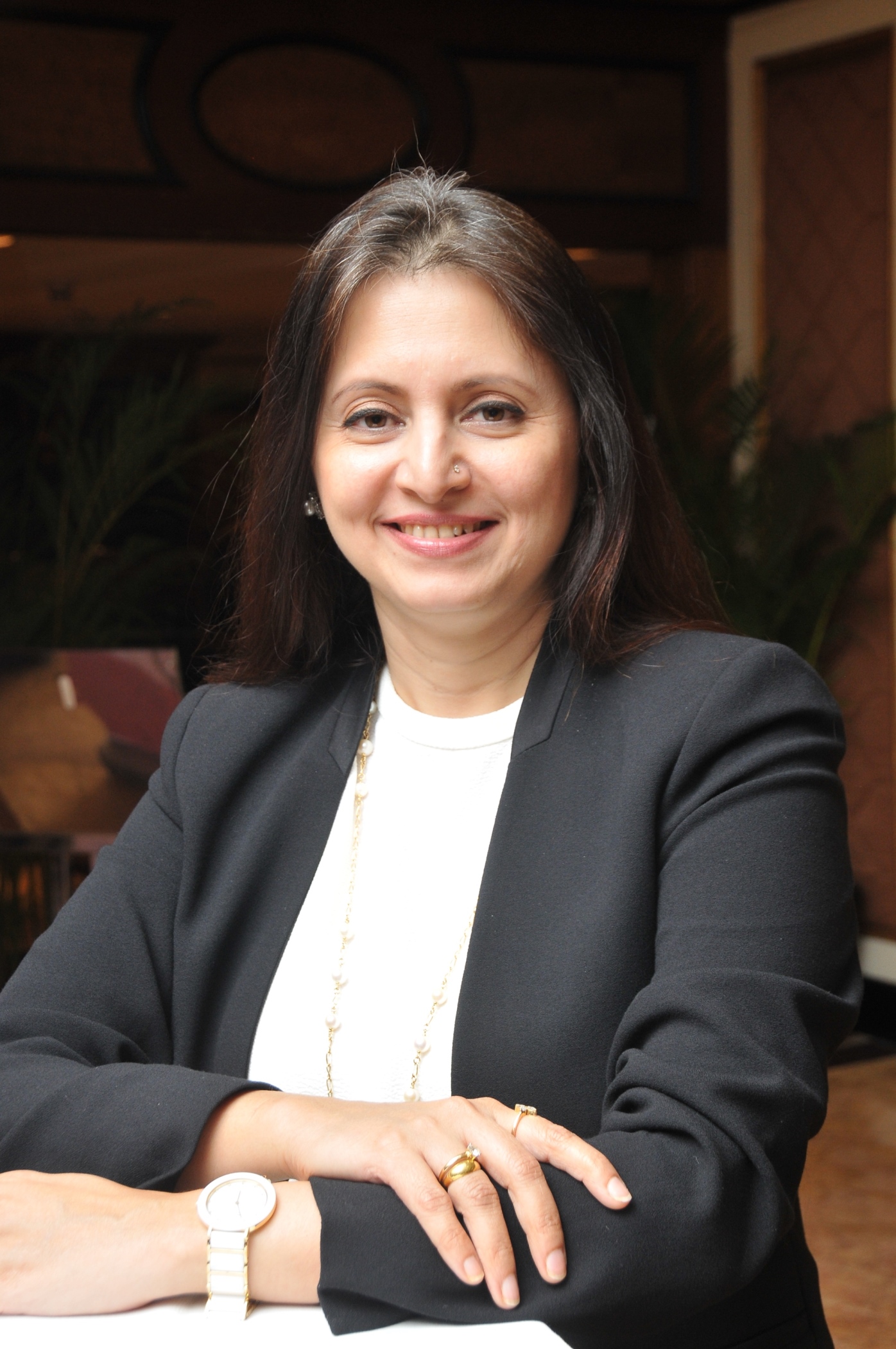Highlights:
During the month of November 2019, ASCI investigated complaints against 408 advertisements, of which 137 advertisements were promptly withdrawn by the advertisers on receipt of communication from ASCI. The independent Consumer Complaints Council (CCC) of ASCI evaluated 271 advertisements, of which complaints against 248 advertisements were upheld. Of these 248 advertisements, 159 belonged to the education sector, 44 belonged to the healthcare sector, eight to personal care, four to the food & beverages sector, and 33 were from the ‘others’ category.
While most of the advertisement were evaluated for making misleading claims, the CCC also upheld complaints against a couple of advertisements for encouraging disregard to safety. A TVC showing a pillion riding barber shaving a policeman in uniform on his way to work was considered to be inappropriate, contravening ASCI Guidelines for Advertisements depicting Automotive Vehicles. Complaint against a drama serial promo indicating the protagonist doing self-harm by stifling her neck with a cloth (duppata) was also upheld.
TVC for a popular pain relief gel claiming “#1 Doctor recommended active for acute pain relief” was considered to be misleading as the terminology “#1 Doctor recommended active” was ambiguous. It omitted a key word “ingredient” which would be understood by general consumers. Visual presentation of a claim by a popular roll on deodorant product of dramatically changing dark underarms to fair in five days was considered to be misleading.
Several advertisements featuring celebrities were caught on the wrong foot for making misleading claims. Advertisement of a popular diagnostic company featured a Bollywood superstar who endorsed their claim of the diagnostic lab being “preferred by most doctors”, which was considered to be misleading by exaggeration and implication. One of India’s well known toothpaste manufacturers featuring another renowned Bollywood celebrity claimed that every other toothpaste containing calcium is cheating customers. The advertisement also denigrated the entire category of “calcium containing white” toothpastes while implying superiority of their ayurvedic toothpaste. Advertisements featuring another legendary Indian cricketer were considered to be misleading for claims such as “No flicker” for a flicker control LED product and “25% faster charging & 25% extra backup” capacity for an inverter battery.
Shweta Purandare, Secretary General, ASCI said “Consumers are exposed to a significant amount of advertisements on a daily basis. Children and youth are thereby greatly influenced not only for the product choices, but also by what is being depicted in the advertisements and celebrity endorsements. Responsible advertising means depicting safe practices and not encourage negligence. It is also the responsibility of Celebrities to check authenticity of the claims they endorse and serve their role of informed influencers.”
DIRECT COMPLAINTS
The advertisements given below were complained against by the general public or by industry members. Of the 68 advertisements complained against, 23 advertisements were promptly withdrawn by the advertiser on receiving communication from ASCI. For the remaining 45 advertisements, complaints against 22 advertisements were upheld by the CCC. Five advertisements belonged to Personal Care, Two from the Education sector, Two from the F&B, two advertisement belonged to the Healthcare sector and 11 from the others category. 23 advertisements were not considered to be objectionable or in contravention of the ASCI code.
Personal Care
1. Dabur Babool Ayurvedic Paste: The television and YouTube advertisement’s claim as translated from Hindi conveyed “Ordinary white toothpastes are cheating consumers (Choona lagana) every single day and there should be someone who can stop this cheating on the teeth and such cheating will now stop after using Dabur Babool Ayurvedic Toothpaste”. The advertisement featuring celebrity Ajay Devgan was considered misleading. The reference to ordinary white toothpaste in the TVC denigrates the entire category of “calcium containing white” toothpastes. The claim of superiority of the advertised product over all “Calcium containing white” toothpastes was not substantiated and the advertisement discredits such products in the garb of educating consumers. The advertiser also did not provide any evidence showing that the celebrities had done due diligence prior to the endorsement, hence violating ASCI’s Guidelines for Celebrities in Advertising as well.
2. Hindustan Unilever Ltd (Rexona Whitening Roll-On): The advertisements claim as translated from Bengali “Contain Vitamin B3 and glycerine which helps get rid of dark underarms in 5 days” was inadequately substantiated and misleading. The advertiser couldn’t provide any findings to prove that in 5 days dark skin becomes dramatically fair as depicted in the TVC, nor any improvement was conclusively proven by objective evaluation. The results from the Expert Visual Assessment states an improvement of only the Evenness of skin color and Skin smoothness which is a subjective assessment; however, it was not representative of complete removal of dark patches as being depicted in the TVC.
Education
The following advertisements violated ASCI’s Guidelines for Advertising of Educational Institutions and Programs.
1. Sorting Hat Technologies Pvt Ltd (Unacademy.com): The Facebook and website advertisement’s claim of “a success rate of CAT 99.99 percentile in verbal ability and reading comprehension for record 9 times” was misleading as the advertiser did not provide any data to support the claim.
2. Udaipur Institute of Hotel Management: The ad-brochure’s claim, “100% Guaranteed job placement on stamp paper* in Abroad & India”, was considered to be misleading as it was not substantiated with authentic supporting evidence. The advertisement did not have any disclaimers to indicate “Past record is no guarantee of future job prospects”, nor did it have a declaration of the total number of students passing out from the placed class. In view of this, the print advertisement also contravened ASCI Guidelines for disclaimers in advertising.
Food and Beverage
1. Field Fresh Foods Pvt Ltd (A Bharti Enterprise) (Del Monte): The YouTube advertisement’s claim, “Whole Green Olives”, “Product of Spain” are misleading. The product packaging indicates that the table olives are packaged in Spain and are labelled as “Whole Green Olives”, “Product of Spain”. However a part of the footage shows handpicking of olives in Puglia, Italy, contradictory to the declarations on pack. The advertisement also violated the ASCI Guidelines for Food and Beverages in advertising.
2. ABBOTT HEALTHCARE PVT. LTD – Ensure: The television advertisement’s claim “Regain strength in 8 weeks” was misleading as the choice of the study as a source of the claim was considered to be incorrect and did not support the claim made in the advertisement. The target group shown in the advertisement is a physically exhausted normal individual returning from office while the referenced study was done with undernourished elderly subjects >65 years (mean age being ~76) and about to be discharged from hospital. The clinical study population was a heterogenous group of undernourished elderly subjects which was different from what is being depicted in the TV/YouTube advertisement as well as through description under the product benefit banner on Amazon post – wherein the age groups of 40 or 45+ have been mentioned. The advertisement was not in the same language of the voiceover, hence contravened ASCI Guidelines on Disclaimers in Advertising as well as Guidelines for Advertising of Foods and Beverages.
Healthcare
1. Reckitt Benckiser Healthcare (India) Pvt Ltd (*) (Moov Advance Diclofenac Gel): The advertisement’s claim “#1 Doctor recommended active for acute pain relief” was considered misleading. It was observed that the basis for claim is a certificate from IQVIA Consulting and Information Services which certifies that Diclofenac is the most prescribed molecule in IQVIA’s Topical Anti-rheumatics category for a 12-month period ending June 2019. The advertised product falls under the category of “OTC medicine” and products in this category are not necessarily sold via prescription route alone. The “most prescribed” claim does not necessarily mean “most recommended” product. Moreover, several of the other prescribed products being referred to in the claim support by the advertiser were multi-ingredient products and not of diclofenac alone. Furthermore, the claim on the website advertisement was also found to be misleading in its presentation. The claim “#1 Doctor Recommended Active” is followed by the product image and the reference to “Active for Acute Pain Relief” is displayed towards the bottom half, dissociating from the main claim. The source of the claim was also missing in the advertisement. The advertisement also contravened ASCI Guidelines for Disclaimers.
2. Vedistry Pvt. Ltd (Moha 5 in 1 Hair Oil): The print advertisements claim “Prevents Premature Greying”, “Eliminates Dandruff” were inadequately substantiated. It was observed that the advertiser provided the clinical trial reports the design and validation in both papers are lacking ‘scientific rigor’ in terms of sample size, evaluation parameters applied, statistical relevance and interpretation of outcomes for the claims. The CCC opined that the clinical tests/trials should have been conducted by an institute having relevant expertise to conclusively prove the claims. The data submitted was not sufficient to justify the absolute claims.
Others
The CCC found that the claims made in the following advertisements were misleading, exploit consumers’ lack of knowledge and can lead to widespread disappointment in the minds of consumers.
1. Livfast Batteries Pvt Ltd (Livfast Inverter and Battery): The advertisement’s claim “Inverter and batteries have 25% faster charging and provides 25% extra backup” featuring celebrity cricketer Mahendra Singh Dhoni was inadequately substantiated. The tests reports provided by the advertiser were carried out by their own R&D to prove that the inverter and the batteries have 25% faster charging than their competitors. The tests were carried out with an arbitrarily defined load cycle. It is further observed that the advertiser had taken products with a lower kVA rating instead of comparing their product with a competitor product of an equal kVA. The technical characteristics of inverters for power supply are often compared based on charging and discharging efficiencies. These are specified by the IS Standards and BEE Standards. The CCC was of the opinion that if any claims related to fast charging are to be made vis-à-vis all competitors- the application, discharge rate needs to be specified- standard test protocols – between the manufacturers, effect on battery life to be estimated and tests need to be done by an independent agency. The YouTube and website advertisements claim is misleading by exaggeration and omission to mention the basis of comparison and contravenes ASCI Guidelines for Disclaimers. The advertiser also did not provide any evidence showing that the celebrities had done due diligence prior to the endorsement, hence violating ASCI’s Guidelines for Celebrities in Advertising.
2. Orient Electric Ltd: The advertisements featuring star cricketer, Mahendra Singh Dhoni was misleading by implication. It was observed that while the advertisement claims to have “flicker control technology”, it visually depicts “no flicker” or absence of any flicker. The CCC concluded that such visual depiction accompanied by voice over “flicker nahi, toh ankhe sahi” was contrary to the flicker control effect. The second claim “Recommended by Indian Medical Academy for Preventive Health” was also misleading as the advertiser gave more weightage and prominence to the word “Indian Medical Academy” while additional wordings “for preventive Health” was downplayed. The advertisement contravened ASCI’s Guidelines for Disclaimers as well as ASCI’s Guidelines for Celebrities in Advertising.
SUO MOTU Surveillance by ASCI FOR MISLEADING ADVERTISEMENTS
The advertisements listed below were picked up through ASCI’s Suo Motu surveillance of Print and TV media through the National Advertisement Monitoring Services (NAMS) project. Out of 340 advertisements that were picked, 114 cases were resolved immediately wherein the advertisers confirmed that the advertisements were being withdrawn post receiving the ASCI communication. All other 226 advertisements examined by the CCC were considered to be misleading. Of these 226 advertisements, 157 belonged to the Education sector, 42 advertisements belonged to the Healthcare sector, three belonged to the Personal Care category, Two belonged to the F&B category and 22 fell in the “Others” category.
Education
The CCC found that the claims made in following 18 advertisements were misleading by exaggeration, exploited consumers’ lack of knowledge and could lead to widespread disappointment in the minds of consumers. A large number of advertisements contravened ASCI Guidelines for Disclaimers in Advertising. These advertisements also violated ASCI’s Guidelines for Advertising of Educational Institutions and Programs.
1. Mother’s Pride: The print advertisement’s claim “India’s Most Loved Pre-School” was not substantiated with any market survey data or with any verifiable comparative data of the advertiser’s pre-school and other similar pre-schools in India, to prove that they are more loved than all other pre-schools by parents and students alike, or through a third party validation.
2. Ompati Devi Memorial College for Women: The print advertisement’s “The Most Trusted Institution of Hisar” was not substantiated with any verifiable comparative data of the advertiser’s college and other similar women’s college in Hisar, to prove that their college is more trusted compared to all the others for providing graduate and undergraduate courses to their girl students, or through a third party validation.
Healthcare
The CCC found that the claims made in the following 21 advertisements were misleading that exploit consumers’ lack of knowledge and could lead to widespread disappointment in the minds of consumers. Several of these claims were misleading by exaggeration.
1. SRL Diagnostics: The print advertisement’s claim “Most Doctor Preferred Lab” featuring Bollywood celebrity Shilpa Shetty was not conclusively established and was considered to be misleading. It was observed that the advertiser’s claim was based on a survey conducted among 199 doctors in 2019 in four cities – Mumbai, Delhi, Kolkata and Bangalore where the doctors were asked to select their most preferred Pathology labs / Diagnostic Centres / Labs in the city. The 2019 report under the section – Brand Preference indicates that for SRL Labs – 94% of the Doctors recommended the labs (Always and Most of the Time), 57 % recommended it always and 37% recommended it most of the time; whereas, Dr. Lal a close competitor was Always and Most of the Time recommended by Doctors – 93% of the time, always recommended – 23% of the time and 70% recommended most of the time. The CCC was of the opinion that the “Top Box” results for SRL and Dr Lal were similar for “always/most of the time” recommendation (94% and 93% respectively). Further, with reference to the two-brand strategy in Kolkata, the CCC opined that the claim made by the advertiser can only be attributed to that brand alone and not to any other, especially one as distinctly different as Drs Tribedi and Roy. The CCC was of the opinion that the advertiser cannot club preferences for both brands and attribute this to the advertiser’s brand alone. The two labs (SRL and Drs Tribedi and Roy) maintain very different websites, have different contact addresses/collection points, and on the face of it have separate operations from each other. The CCC observed that the advertiser also did not provide any evidence to show that the celebrity Shilpa Shetty had done due diligence prior to endorsement, to ensure that all description, claims and comparisons made in the TV advertisement are capable of substantiation. The advertisement contravened ASCI’s Guidelines for Celebrities in Advertising.
2. VLCC Health Care Limited (VLCC Cool Sculpting): The print and television advertisement’s claim “Add figure to your shape in just one session” was not substantiated with treatment efficacy data. The advertiser did not provide evidence of their customers who achieved the claimed results of adding figure to their shape in just one session regardless of their physiological status and lifestyle.
Personal Care
1. Indus Cosmeceuticals Pvt Ltd (Indus Valley Gel Colour): The print advertisement’s claim “Gel Hair Colour is More Safe Than Most of The Contemporary Hair Colours” was not substantiated as the advertiser did not provide details of the said comparative study of their product and other hair colour products nor any comparative technical test reports, or scientific rationale for the claim. Furthermore, the claim unfairly denigrated other products directly in the hair colour category by implying that they are less safe. The second claim “Doctor Recommended” was not substantiated as the advertiser failed to provide any proof that the product is recognized by doctors for its efficacy and is recommended by the same. The third claim “Organically Natural Hair Colour” was not substantiated as the advertiser did not provide any organic certification for their product nor supporting data to prove it is natural.
2. Arganshe Pvt Ltd- (Anti-Ageing Sun Protective Face Crème (Spf 30) & Rose Calamine Sun Protective Face Crème (Spf 60)): The print advertisement’s claim “SPF 30” & “SPF 60” were not substantiated as the advertiser did not provide any specific information for these products such as copy of product approval license, product label and product composition details nor any scientific or technical rationale for the product claims.
Food and Beverage
1. R.M. Dhariwal Foods & Beverages Pvt. Ltd (Manikchand Oxyrich): the print advertisement claim, “300 % MORE OXYGEN.” was not substantiated as the advertiser did not provide any technical data/test reports to prove that the product has “300% more oxygen” and the basis of comparison was not stated in the advertisement. The advertisement contravened ASCI guidelines for advertising of Food and Beverages.
2. Dhanya Pharmaceuticals (Ayurved) (D-Salt Alcoholizam): The television advertisement’s claim, “100 Percent Natural and Certified Organic Product.” was not substantiated. It was observed in the Malayalam TVC that the advertiser is promoting their product `DSalt Alcoholizam” as a medicine for quitting alcohol and those addicted to wine drinking. The advertiser failed to provide information on product specific such as copy of product label, product approval license and product composition details, any scientific or technical rationale for the product claim, any natural or organic certification for their advertised product.
Others
The CCC found that the claims in the following 22 advertisements were misleading and exploited consumers’ lack of knowledge which could lead to widespread disappointment in the minds of consumers.
1. LG Electronics India Pvt. Ltd (LG OLED TV): The print advertisement’s claim, “World’s Best-Selling OLED Brand” was not substantiated with copy of the award certificate, details of the awarding body, details of the criteria for granting the award, references of the award received such as the year, source, category, survey methodology, parameters considered, questionnaires used, names of other similar OLED brands that were part of the survey and outcome of the survey. The advertisement contravened ASCI Guidelines for Disclaimers.
2. Tata Chemicals Ltd (Tata Dx Detergent Expert): The television commercials claim, “Remove the toughest of stains when soaked for 15 mins” and visual shows a saree being soaked for 15 minutes and it comes out clean and completely spotless. The voice over claim when seen in conjunction with the visual is likely to mislead the consumers that the stain can be removed completely when soaked for 15 mins alone. The CCC also observed that though the TVC claims of stain removal in the voice over, the pack claim and visual have no such claim and it refers only to dirt removal. The second claim “15 mins detergent expert” was also misleading. The front image of the pack gives an impression that just 15 minutes of soaking is enough, and whereas back of pack further clarifies that a 10 min long wash is also required.
About The Advertising Standards Council of India (ASCI)
The Advertising Standards Council of India (ASCI), established in 1985, is committed to the cause of self- regulation in advertising ensuring the protection of the interest of consumers. ASCI seeks to ensure that advertisements conform to its Code for Self-Regulation, which requires advertisements to be legal, decent, honest and truthful and not hazardous or harmful while observing fairness in competition. ASCI looks into complaints across ALL MEDIA such as Print, TV, Radio, hoardings, SMS, Emailers, Internet / web-site, product packaging, brochures, promotional material and point of sale material etc. In January 2017, the Supreme Court of India in its judgement affirmed and recognized the self-regulatory mechanism as an effective pre-emptive step to statutory provisions in the sphere of advertising content regulation for TV and Radio in India. ASCI’s role has been acclaimed by various Government bodies including The Department of Consumer Affairs (DoCA), Food Safety and Standards Authority of India (FSSAI), Ministry of AYUSH as well as the Ministry of Information and Broadcasting (MIB). MIB issued an advisory for a scroller providing ASCI’s WhatsApp for Business number 77100 12345, to be carried by all TV broadcasters for consumers to register their grievance against objectionable advertisements. ASCI is a part of the Executive Committee of International Council on Ad Self-Regulation (ICAS). Among several awards bestowed by the European Advertising Standards Alliance (EASA), ASCI bagged a Gold Global Best Practice Award for the Mobile App “ASCIonline” (2016). As well as a special recognition for its “Guidelines for Celebrities in Advertising” at the first-ever ‘Global Awards for Effective Advertising Self-Regulation’ hosted by the ICAS (2019).






